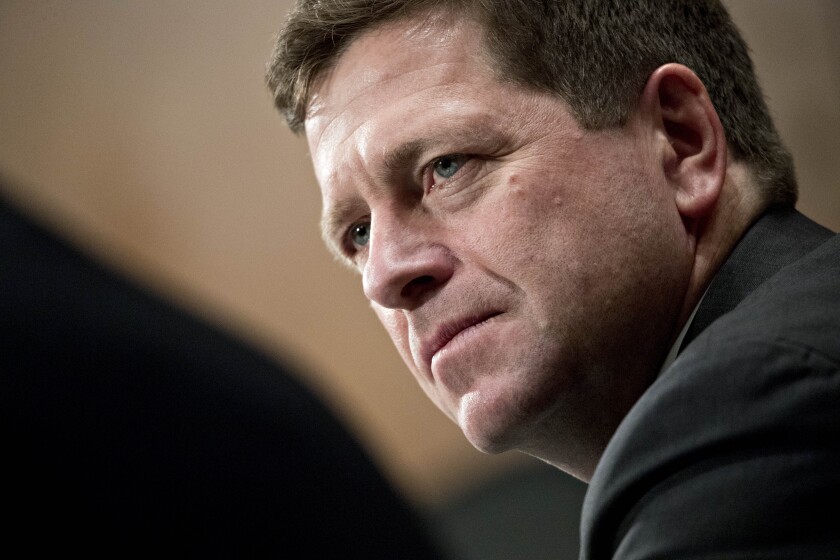The mall and entertainment venue shut its doors to combat the spread of the novel coronavirus, five months after its partial opening.
A large percentage of Institutional investors lack confidence in the U.S. government’s ability to contain and eradicate the coronavirus outbreak. But few have plans to pull capital out of specific geographic regions due to the pandemic.
“This is a demand and supply shock,” Jay Clayton said, adding that he’s concerned businesses might not have access to all the credit they need.
The Federal Reserve's most recent economic-stimulus effort could reduce disparities between a rally in Treasurys and a relative slump in mortgage-backed securities that contributed to higher average home-lending rates last week.
The municipal finance industry is dealing with minute-by-minute news of state-wide school closures, shuttered restaurants, curfews and canceled events. New issues are increasingly being put on the day-to-day calendar.
Muni market players may have to rely on more than their basic instincts as the economy heads into stormy weather.
Chicago Mayor Lori Lightfoot's administration is stressing the city's improved liquidity and jolt of refinancing savings provide a cushion to manage the near-term tax losses.
The comptroller, citing projected losses in entertainment and tourism while the city is virtually closed, called for a savings target of 4% of tax levy-funded agency spending.
Uncertainty still abounds for the public finance space, as just before the market close, President Trump declared a national emergency. Meanwhile, states and cities across the country are closing schools, sporting events, and cutting back public transit. But Friday, at least, provided some reprieve from the five previous volatile days.
Nuveen, Friedlander, BofA offer some recommendations on COVID-19 credit and sector impact.
















